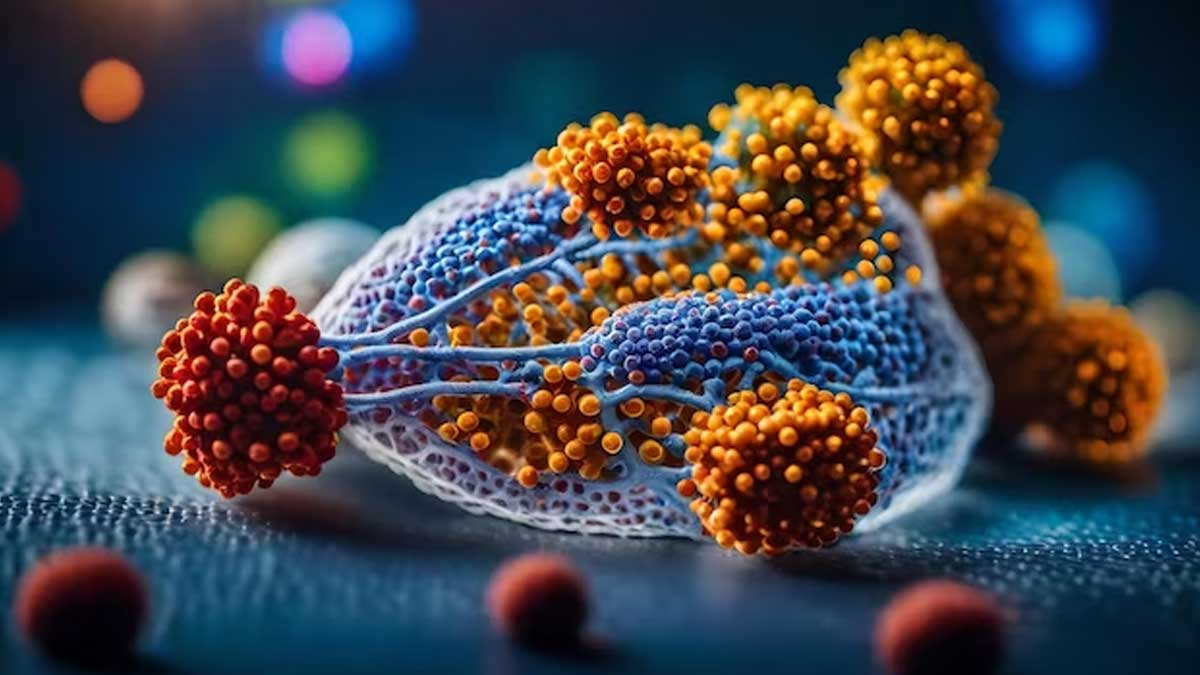You and I were just emerging from the Corona epidemic when another dangerous virus knocked in the country. We are talking about the Nipah virus. Due to this dangerous virus, there is an outcry in many states of the country, especially in Kerala. This is a virus spreading from animals to humans. Let us know what this Nipah virus is. How does it spread? What are its symptoms and how can it is prevented?

What is the Nipah virus?
According to the World Health Organization (WHO), Nipah virus infection is a genetic disease, which means it can spread from animals to people. It can also spread through contaminated food or directly from one person to another. This viral infection spreads mainly through bats. Apart from this, it affects animals like pigs, dogs, cats and horses. Even if someone accidentally eats the fruits eaten by these animals, there is a risk of infection. A person infected with this virus may be at risk of serious respiratory diseases as well as diseases like encephalitis. Whereas in cases infected with the Nipah virus, the mortality rate remains between 40 to 75 percent. When a person is infected with Nipah virus, symptoms start appearing within 4 to 14 days.
What are the symptoms of the Nipah virus?
- Infected persons may have trouble breathing.
- Neurological problems may be seen in some patients.
- This also includes fever, headache, nausea and cough.
- Fainting, fatigue, blurred vision, and confusion are also included.
What are the preventive measures? (Is there a cure for Nipah?)
According to the World Health Organization, the only way to avoid this virus is prevention. The more you protect yourself, the better it is for you, because there is no medicine or vaccine available in the market to prevent the Nipah virus. If you eat fruits, wash the fruits thoroughly. Avoid eating fruits gnawed by any animal. Wash hands with soap. Avoid touching your eyes and mouth repeatedly. If you see some symptoms in the beginning, then consult a doctor without wasting time.
Image Credit: Freepik
11
https://www.herzindagi.com/hindi/diet-nutrition/best-remedies-for-irregular-periods-article-245799
Best remedies for irregular periods: Do periods come intermittently? These grandmother's 'Indian at heart' remedies will be useful
Periods are a natural process that every woman has to go through. At the same time, irregularity in periods is also a problem which every woman has to face. Just like some women get their periods late, some get their periods intermittently. If this happens to you too then it is a matter of great concern because this problem affects the entire body of the woman. If menstruation does not proceed properly then it affects the reproductive function of the woman. There can be many reasons behind this, like bad lifestyle, stress, hormonal changes etc. There are many remedies to overcome this problem.
Today in Dil Se Indian we are telling you about one such remedy which has been suggested by wellness consultant Sheenam.K. Malhotra also believes it to be true. If you also have intermittent periods, then you can get relief from this problem with the help of this remedy. Let us know what those remedies are.
Home remedy to regularize periods
Ginger Tea
You can consume ginger tea to regulate periods. Experts also recommend drinking ginger tea to regulate the menstrual cycle. It produces heat in the body which induces menstruation and also helps in relieving menstrual cramps. Gingerol compound found in ginger is known to have antioxidant and anti-inflammatory properties which are also known to reduce menstrual pain.
Raw papaya
You can include raw papaya in your daily diet. It is believed that raw papaya helps regulate the menstrual cycle and regularize periods. It contains an enzyme called papain which regulates menstruation. Carotenoids are also found in it. It is known for its antioxidant properties. Which can help in regulating hormones in women? The carotene present in papaya stimulates the estrogen hormone which causes periods.
Vitamin D
You should include Vitamin D-rich foods in your diet. Like mushrooms, egg yolk, oranges. The most natural source of Vitamin D is sunlight. In such a situation, try to sit in the sun for 10 to 15 minutes every day. Vitamin D is known to help regulate the menstrual cycle in women. By taking adequate amounts of Vitamin D, you can reduce the effects of hormonal imbalance and fluctuations.
Along with taking these measures, it is also important for you to have the right lifestyle and a balanced diet. To manage stress, include meditation and exercise in your routine.
Image Credit: Freepik










